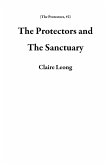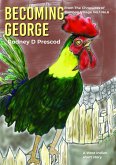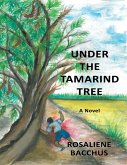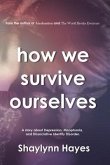Berthas is written in a lyrical style much like Toni Morrison's Jazz (1992), Beloved (1987) as well as Sam Selvon's Lonely Londoners (1956). Like these novels, Berthas has a distinct but modern style that deliberately links with these lyrical novels. And like the characters and people it represents, the structure of this novel is of a hybrid nature. Berthas rests within the oral tradition of the Caribbean as well as incorporating the traditional superstitious beliefs that survived African Slavery, combined/compared with the religious Christian beliefs of the West, and is very much set in the modern world. The language is also reflective of the hybridity of the people, combining English with Patois in order to create a new language for a new people.
The structure combines different voices, exploring Double Consciousness through Dissociative Identity Disorder, and the hybridity of culture and experience through Revisionist Literature. These voices overlap at times, creating a sense of confusion which is reflective of the theorised collective sense of cultural confusion of being Black Caribbean British. Berthas also examines the internal voice much like Bessie Heads, A Question of Power (1973).
Dieser Download kann aus rechtlichen Gründen nur mit Rechnungsadresse in A, B, CY, CZ, D, DK, EW, E, FIN, F, GR, H, IRL, I, LT, L, LR, M, NL, PL, P, R, S, SLO, SK ausgeliefert werden.









